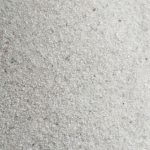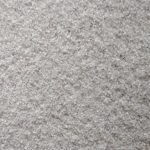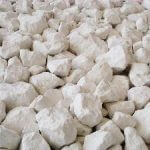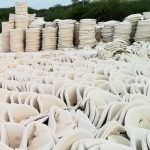
Glass Grade Silica Sand
We use the latest spiral technology to produce high quality dry silica sand with low iron content perfect for the production of clear glass, flat sheet glass, glass containers and fiberglass. Chemical composition: LOI - ≤ 0.5; SiO2 - ≥ 98.5; Al2O3 - ≤ 1.0; Fe2O3 - ≤ 0.04; TiO2 - ≤ 0.07;

Fracking Sand
Our Frac sand is processed through a series of screens and density separators. The frac sand we produce comes in different size ranges for effective use in the commercial operations in the oil and gas industry.

Foundry Sand
Backed by our Experience and latest technology, we are the best manufacturing and supplier of world class range of industrial foundry sand (SiO2, A- AFS – 40-80) in India.

Water Filtration sand (filter media)
Our filter sand is clean, dried and screened to meet the required specifications with quality control.

Crushed Limestone
We specialize in manufacturing different size of crushed limestone required for the fabrication of ready mix concrete, cement block, filter media and asphalt for road and runways.

China Clay (Kaolinite)
We are the producers of best quality Kaolin & China Clay that is widely used in manufacturing ceramics, paints, oil bound distemper manufacturing.

Recreational Sand
We have developed special sand for golf, volleyball and other fields of play. Our silica sands and drainage gravels offer consistency in color and sizing.
Working with Earth Industries has been a privilege. They have emerged as strong market leaders in the silica sand business. We look forward to continuing our relationship with them to be able to create a sustainable long-term value for our company.
Purchase Head
Global Glass Manufacturing Company
Global Glass Manufacturing Company
What is Silica Sand?
Silica Sand is quartz that over time, through the work of water and wind, has been broken down into tiny granules.
Commercial Silica Sand is widely used as a proppant by companies involved in oil and natural gas recovery in conventional and unconventional resource plays. The resource is also used in industrial processing to make everyday items such as glass, construction materials, personal care products, electronics, and even renewable materials.
Industrial sand is a term normally applied to high purity silica sand products with closely controlled sizing. It is a more precise product than common concrete and asphalt gravels.
Silica (SiO2) is the name given to a group of minerals composed solely of silicon and oxygen. Found most commonly in the crystalline state, it also occurs in an amorphous form resulting from weathering or plankton fossilization.
Silica sand deposits are most commonly surface-mined in open pit operations, but dredging and underground mining are also employed. Extracted ore undergoes considerable processing to increase the silica content by reducing impurities. It is then dried and sized to produce the optimum particle size distribution for the intended application.
For industrial and manufacturing applications, deposits of silica-yielding products of at least 95% SiO2 are preferred. Silica is hard and chemically inert and has a high melting point, attributable to the strength of the bonds between the atoms. These are prized qualities in applications like foundries and filtration systems. Industrial sand’s strength, silicon dioxide (SiO2) contribution, and non-reactive properties make it an indispensable ingredient in the production of thousands of everyday products.
Glassmaking
Silica sand is the primary component of all types of standard and specialty glass. It provides the essential SiO2 component of glass formulation, and its chemical purity is the primary determinant of colour, clarity, and strength. Industrial sand is used to produce flat glass for building and automotive use, container glass for foods and beverages, and tableware. In its pulverized form, ground silica is required for production of fibreglass insulation and reinforcing glass fibers. Specialty glass applications include test tubes and other scientific tools, incandescent and fluorescent lamps, and television and computer CRT monitors.
Metal Casting
Industrial sand is an essential part of the ferrous and non-ferrous foundry industry. Metal parts ranging from engine blocks to sink faucets are cast in a sand and clay mold to produce the external shape, with a resin bonded core creating the desired internal shape. Silica’s high fusion point (1760°C) and low rate of thermal expansion produce stable cores and molds compatible with all pouring temperatures and alloy systems. Its chemical purity also helps prevent interaction with catalysts or curing rate of chemical binders. Following the casting process, core sand can be thermally or mechanically recycled to produce new cores or molds.
Metal Production
Industrial sand plays a critical role in the production of a wide variety of ferrous and non-ferrous metals. In metal production, silica sand operates as a flux to lower the melting point and viscosity of the slags to make them more reactive and efficient. Lump silica is used either alone or in conjunction with lime to achieve the desired base/acid ratio required for purification. These base metals can be further refined and modified with other ingredients to achieve specific properties such as high strength, corrosion resistance, or electrical conductivity. Ferroalloys are essential to specialty steel production, and industrial sand is used by the steel and foundry industries for de-oxidation and grain refinement.
Chemical Production
Silicon-based chemicals are the foundation of thousands of everyday applications ranging from food processing to soap and dye production. In this case, SiO2 is reduced to silicon metal by coke in an arc furnace, to produce the Si precursor of other chemical processes. Industrial sand is the main component in chemicals such as sodium silicate, silicon tetrachloride, and silicon gels. These chemicals are used to produce household and industrial cleaners, to manufacture fiber optics, and to remove impurities from cooking oil and brewed beverages.
Construction
Industrial sand is the primary structural component in a wide variety of building and construction products. Whole grain silica is put to use in flooring compounds, mortars, specialty cements, stucco, roofing shingles, skid resistant surfaces, and asphalt mixtures to provide packing density and flexural strength without adversely affecting the chemical properties of the binding system. Ground silica performs as a functional extender to add durability and anti-corrosion and weathering properties in epoxy-based compounds, sealants, and caulks.
Paint and Coatings
Paint formulators select micron-sized industrial sands to improve the appearance and durability of architectural and industrial paint and coatings. High purity silica contributes critical performance properties such as brightness and reflectance, colour consistency, and oil absorption. In architectural paints, silica fillers improve tint retention, durability, and resistance to dirt, mildew, cracking, and weathering. Low oil absorption allows increased pigment loading for improved finish colour. In marine and maintenance coatings, the durability of silica imparts excellent abrasion and corrosion resistance.
Ceramics & Refractories
Ground silica is an essential component of the glaze and body formulations of all types of ceramic products, including tableware, sanitary ware, and floor and wall tile. In the ceramic body, silica is the skeletal structure upon which clays and flux components attach. The SiO2 contribution is used to modify thermal expansion, regulate drying and shrinkage, and improve structural integrity and appearance. Silica products are also used as the primary aggregate in both shape and monolithic type refractories to provide high temperature resistance to acidic attack in industrial furnaces.
Filtration and Water Production
Industrial sand is used in the filtration of drinking water, the processing of wastewater, and the production of water from wells. Uniform grain shapes and grain size distributions produce efficient filtration bed operation in removal of contaminants in both potable water and wastewater. Chemically inert, silica will not degrade or react when it comes in contact with acids, contaminants, volatile organics, or solvents. Silica gravel is used as packing material in deep-water wells to increase yield from the aquifer by expanding the permeable zone around the well screen and preventing the infiltration of fine particles from the formation.
Recreational Products
Industrial sand even finds its way into sports and recreation. Silica sand is used for golf course bunkers and greens as well as the construction of natural or synthetic athletic fields. In golf and sports turf applications, silica sand is the structural component of an inert, uncontaminated growing media. Silica sand is also used to repair greens and to facilitate everyday maintenance like root aeration and fertilization. The natural grain shape and controlled particle size distribution of silica provides the required permeability and compaction properties for drainage, healthy plant growth, and stability.
Oil and Gas Recovery
Known commonly as proppant, or “frac sand”, industrial sand is pumped down holes in deep well applications to prop open rock fissures and increase the flow rate of natural gas or oil. In this specialized application, round, whole grain deposits are used to maximize permeability and prevent formation cuttings from entering the well bore. Silica’s hardness and its overall structural integrity combine to deliver the required crush resistance of the high pressures present in wells up to 2,450 metres deep. Its chemical purity is required to resist chemical attack in corrosive environments.
